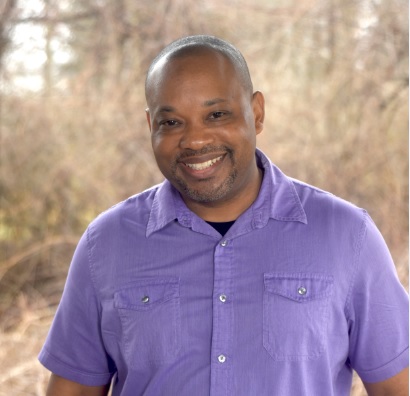 Glen Guyton is chief operating officer and director of Convention Planning for Mennonite Church USA.
Glen Guyton is chief operating officer and director of Convention Planning for Mennonite Church USA.
After ringing in 2017 with my 88 year old mother and 93 year old aunt I seriously began thinking about family times, history and my future. My time with my familial matriarchs left me wondering what type of legacy I will be leaving for my children and the people I have connected with throughout the 24 years I have been part of the Mennonite community. Interestingly enough, I am at the half-life mark with the Mennonites. I was about 23 when I found Calvary Community Church in Hampton, Virginia. So 50 percent of my life is pre-Menno and 50 percent is post-Menno.
Some interesting historical events surround my birth year of 1969. In 1968 civil rights leader Dr. Martin Luther King Jr. was assassinated by James Earl Ray, just five years after his famous “I Have a Dream” speech. Dr. King was thrust into the civil rights movement in 1955 after both Claudette Colvin and Rosa Parks refused to give up their seats to whites. Dr. King never lived to see the culmination of his dream, but he fought for over 14 years to bring change to these United States. That change was hard and the struggle for racial justice continues to this day.
On July 20, 1969 Neil Armstrong stepped out of the Apollo 11 lunar module and uttered the now famous words, “That’s one small step for man, one giant leap for mankind.” The vision for that “one small step” was birthed in 1962 when President John F. Kennedy told the nation, from Rice University in my hometown of Houston, Texas, “We choose to go to the moon in this decade and do other things, not because they are easy, but because they are hard, because that goal will serve to organize and measure the best of our energies and skills because that challenge is one that we are willing to accept.” It took years of planning and many hidden figures for the moon landing to become a reality. There were many, many small steps that led to that historic “one giant leap” for humankind. Leaders and those behind the scenes took incalculable risks in even casting the vision for going to the moon.
As I ponder my future and my involvement in Mennonite Church USA, I want to make sure I leave it better than I found it — not in an egotistical sort of way, but in a southern hospitality kind of way. That’s how my momma raised me and it’s just the decent thing to do: Do your best and follow the example of Christ.
Since 2009 our denomination has been in decline for all sorts of reasons: financial, political and theological. Issues of sexuality, race, gender and polity have dominated our thoughts and discussions. Some left our 2015 convention in Kansas City disillusioned, angry, hopeless and hurt. Others just left. Not one group that I relate to in my denominational role feels like Mennonite Church is for them. People of color, LGBTQ folks and women are all calling for justice and inclusion. White men are feeling attacked and marginalized. Both conservatives and liberals are saying the church has silenced their voices. At times it seems the only happy people I meet on my travels are the babies that love my round face and sunny disposition.
Orlando 2017 gives us a chance reboot and dream together about what the future holds for Mennonite Church USA. We are going to try something new, something hard, something different.
Mennonite Church USA. We are going to try something new, something hard, something different.
Somewhere between the formation of Mennonite Church USA and now, we have forgotten how to talk to each other. Trust in the institution has eroded. We have forgotten what first brought us together as Mennonite Anabaptists and have taken our martyr roots for granted. I believe we also have forgotten how difficult change is —how costly it can be. Early Anabaptist like Maeyken Wens knew how hard change was. She was so eager to talk at her execution, the powers that be literally screwed her tongue down. Instead of a movement where people were willing to die for their faith, we have become a bureaucracy that is concerned about being sued. At one time there was no limit to the sacrifices that defined our faith, but now we have to test the righteousness of our decisions against the strength of our liability insurance. Who needs tongue screws when the worry over dollars and the status quo can silence us?
We often compare our church to a big family. Sometimes we forget what it means to be family. Families struggle, families fight, but we also love, we forgive, and we don’t cast each other aside because of our peculiarities or unique orientations. Yes we have values, beliefs and core identities that we should all share, but families also coexist with grace and compassion.
I have proposed to our denominational leaders and boards a new process for working together in conjunction with our biennial delegate assembly: the Future Church Summit, a gathering to imagine an Anabaptist future for Mennonite Church USA. Together we will wrestle with the overarching question, “How will we follow Jesus as Anabaptists in the 21st century?” Both individuals and institutions must ask hard questions: Why do we exist? Would I choose to be a part of this family if I had a choice? It is appropriate that we ask these questions as a 15 year old denomination, facing the reality of our changing body. It is important that our delegates and others speak into where we have been, where we are, and where we are going.
I challenge those of you invested in Mennonite Church USA to join us in Orlando. I invite as many of our family members, that are willing and able, to come to join us to dream. Let’s dream together with the understanding that we will never be a perfect church. We will continue to fail and make mistakes as we journey together. Let us dream knowing that this journey has many small steps without a clear destination, but we know that we are beyond the illusion that we can continue to do business as usual.
As I think about my legacy in Mennonite Church USA, I want to be remembered as a person who tried to be true to God’s call and who lived by faith. After all, Hebrews 11:6 says that without faith it is impossible to please God, for anyone that comes to God must believe that God is and our God is a rewarder of those that diligently seek him.
Speaking in faith, I am excited by the possibility of what can “begin” in Orlando. I want to be present for that first small baby step for this evolving denomination. I hope you come. Not to fill the coffers of Mennonite Church USA, but I hope you come because you believe in the foundational vision of this denomination.
I hope you come because you love to hear the stories of the wonderful men and women who are living out their call in their local context. I hope you come because we need your voice. I hope you come because we are family and we love each other — even when we get on each other’s last nerve.
I hope you come to Orlando to be a part of this one small step toward change because it’s hard work that’s worth it. It’s hard and the goals we hope to achieve, “will serve to organize and measure the best of our energies and skills because that challenge is one that [you] are willing to accept.”
See you in Orlando.
For more information about how to participate in the summit, go to http://convention.mennoniteusa.org/future-church-summit/.

